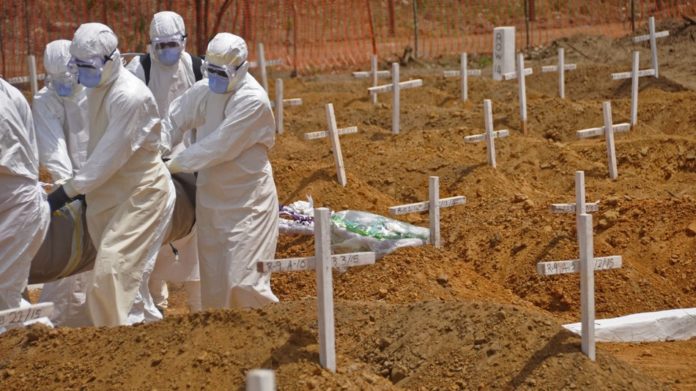Patient tests positive for Ebola in Liberia, after weeks with no new cases

MONROVIA, Liberia — A patient has tested positive for Ebola in Liberia’s capital, officials said Friday, deflating hopes that the West African nation had beaten the disease after weeks with no new cases.
Liberia has seen the most deaths in the West African Ebola outbreak, which has killed more than 10,000 people. More than 4,000 people have died from Ebola in the country, according to the BBC. But since it discharged its last case on March 5, Liberia was counting down the World Health Organization-required 42 days that countries must wait before being declared Ebola-free.
Now, a new female patient has tested positive, according to Dr. Francis Kateh, acting head of the country’s Ebola Incident Management Team. Tolbert Nyenswah, who runs Liberia’s Ebola response, also said he had been told the test result was positive. Up until Friday, there hadn’t been a new case of Ebola in the country for 20 days, the BBC reported.
The woman arrived at the emergency room of Monrovia’s Redemption Hospital on Thursday night, according to Elizabeth Hamann of the International Rescue Committee, which is helping the hospital reopen amid the outbreak. The woman was identified as a suspected Ebola case and put in the hospital’s isolation unit, while awaiting test results. She is now at a treatment center.
In a worrying sign, it is unclear where the woman became infected. She doesn’t seem to be linked to any of the people on an Ebola contacts list, and has said that she did not travel to an infected country, according to Kateh.
He said authorities were considering the possibility that the woman had a visitor from outside Liberia who infected her, or that she had sex with a survivor. The Ebola virus can be found in the semen of survivors for up to three months, and health authorities recommend that survivors abstain from sex during that period.
An emergency meeting will be held Saturday to discuss the case.
Although hopes were high that Liberia had beaten Ebola, officials knew that until two neighboring countries — Sierra Leone and Guinea — also beat the disease, Liberia would remain at risk. “We knew very well that we were not out of the woods yet,” Nyenswah said.
Additional reporting by Mashable
Have something to add to this story? Share it in the comments.
